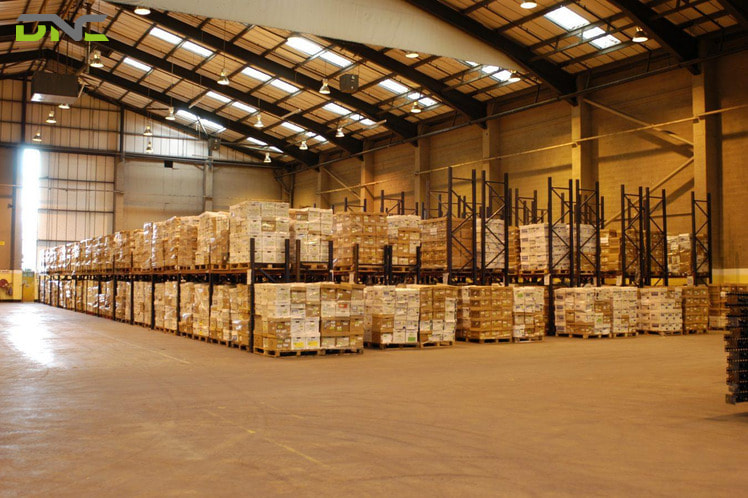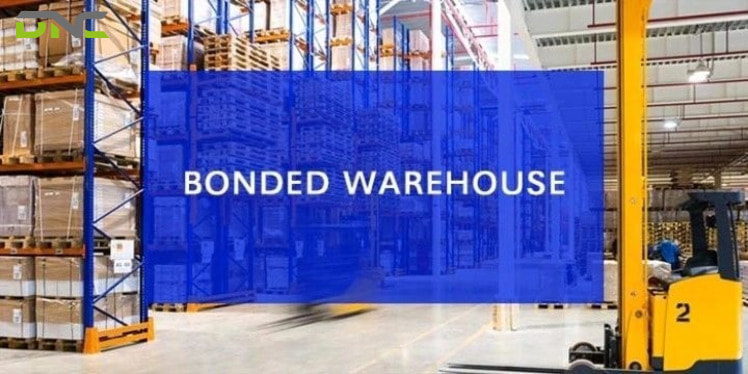Why do import-export businesses in Malaysia choose bonded warehouse?
As import and export activities continue to expand, choosing the right type of warehouse plays a key role in optimizing costs and cash flow. Bonded warehouses are a solution trusted by many businesses in Malaysia thanks to their ability to defer import taxes, flexibly re-export goods and save on storage costs. In this article, we will learn what a bonded warehouse is, how it works, its advantages and disadvantages, and compare it with a regular warehouse to help you make the most appropriate choice.
What is a bonded storage warehouse?
A bonded storage warehouse is a type of warehouse licensed and controlled by customs authorities, where imported goods can be stored without having to pay import duties or value-added tax (VAT) immediately.
In other words, this is a place where businesses can temporarily store goods while waiting for import, export procedures, or forwarding goods to other countries.
Main features of bonded storage warehouse:
- Goods are exempt from tax during storage.
- Usually used for imported goods awaiting distribution or re-export.
- Operating under strict supervision of customs authorities.
- Can perform operations such as sorting, repackaging, labeling… but are not allowed to produce or change the nature of the goods.

What is a bonded storage warehouse?
What are the advantages and disadvantages of bonded warehouse for importers/exporters?
Advantages of bonded warehouse
- Tax payment deferral: Enterprises do not need to pay taxes immediately upon arrival of goods but only pay taxes when goods are taken out of the warehouse for consumption. Helps reduce financial pressure, especially when goods do not have an immediate outlet.
- Easy re-export: If goods are not sold domestically, enterprises can re-export without paying import tax, saving costs.
- Flexible in distributing and handling goods: Goods stored in bonded warehouses can be divided, repackaged, labeled, classified or counted before being distributed to the market.
- Support international trade: An effective transit point for businesses doing logistics or multinational import and export.
Disadvantages of bonded warehouse
- Storage costs: Storing goods in bonded warehouses still incurs costs for warehouse rental, preservation, and labor, sometimes higher than in regular warehouses.
- Complicated procedures: Operating under customs supervision, so procedures for entering/exiting warehouses are more complicated and time-consuming than domestic warehouses.
- Limited storage time: In some countries, the time that goods are stored in bonded warehouses is limited (e.g. up to 12 months), if exceeded, it will be handled according to regulations.
Bonded warehouses are a flexible solution for import – export businesses, especially in optimizing tax costs and cash flow management. However, businesses need to understand customs regulations and balance costs to use effectively.

Advantages and disadvantages of bonded warehouse for importers/exporters
How does a bonded warehouse work?
Bonded warehouses operate under the supervision of customs authorities and allow businesses to store imported goods without having to pay taxes immediately. Here is the basic operating process:
Step 1: Import goods into the bonded warehouse
- Businesses import goods from abroad.
- Instead of going through customs clearance procedures immediately, the goods will be transferred to a licensed bonded warehouse.
- Here, the goods are inspected, sealed and supervised by customs.
Step 2: Store and process goods
- During the storage period, businesses can: Count and classify goods; Repackage and label according to the requirements of each market; Collect or separate shipments
- Not allowed to produce or change the nature of goods.
Step 3: Decide on the handling of goods
Enterprises have 2 options: Export (Re-export) to another country and Domestic consumption (Official import)
- If the goods are sold to foreign markets, the enterprise does not need to pay import tax in Vietnam. The goods will be exported directly from the bonded warehouse to the port/airport for transportation.
- If the enterprise decides to sell domestically, it must go through customs procedures to take the goods out of the warehouse; Pay full import tax, VAT and related taxes. After customs clearance, the goods can be transported to a domestic warehouse or delivered to customers.
How much does a bonded warehouse cost?
The cost of renting a bonded warehouse depends on many factors such as: storage area and time, type of goods, accompanying services (packaging, sorting, insurance, etc.), warehouse location (near the port or inland), and the level of customs control. In addition, prices can also fluctuate according to season and market demand.
- From 10 – 20 USD/m²/day for normal goods.
- From 30 – 50 USD/m²/day for special goods (requiring cold storage, high security…).
- Additional service fees (packaging, labeling, counting, loading and unloading…) can be calculated separately, about 20 – 30 USD/ton/trip depending on the service.

The cost of renting a bonded warehouse depends on many factors such as: storage area and time, type of goods, accompanying service,…
What is the difference between bonded and non-bonded warehouse?
To choose the right storage solution, businesses need to understand the clear difference between bonded warehouses and non-bonded warehouses. Below is a detailed comparison table to help you visualize.
| Bonded Warehouse | Non-bonded Warehouse | |
| Managed by | Directly supervised customs agency | Self-managed by the enterprise, no customs supervision |
| Subject of goods | Imported goods that have not completed customs procedures | Goods that have completed customs procedures |
| Import tax | Not required to be paid when goods are in the warehouse | Payable before being put into the warehouse |
| Re-export capability | Can be re-exported without incurring tax | Re-export not applicable (because goods have been officially imported) |
| Warehouse entry/exit procedures | More complicated, requiring customs approval | Simple, no need to go through customs |
| Maximum storage time | Limited (usually 6–12 months depending on country/regulation) | Unlimited storage time |
| Storage costs | Usually higher due to security and monitoring requirements | Lower costs depending on the service warehouse |
| Goods handling activities | Allowed to classify, pack, label (not manufactured) | Free handling, subject to internal regulations and service contracts |
| Common applications | Logistics, import-export, international trade enterprises | Domestic enterprises, retail, distribution |
What is a reputable bonded storage warehouse provider in Malaysia?
If you are uncertain about where to purchase a bonded storage warehouse, DNC Automation is an excellent option for you. Many customers have trusted DNC to provide automation solutions in the production process and have had positive experiences because:
- DNC is a leading technology, automation, and engineering company in Malaysia with over 15 years of experience in the field of automation
- System integration machinery, Internet of Things (IoT), Industry 4.0, and WinCC Scada System
- Diverse designs and sizes are suitable for many domestic and foreign houses. The equipment is 100% genuine and imported from Malaysia.
Please contact us via the hotline below if you have any questions about the product, we are happy to answer you!
- 10 views
- 0 Comment




Recent Comments